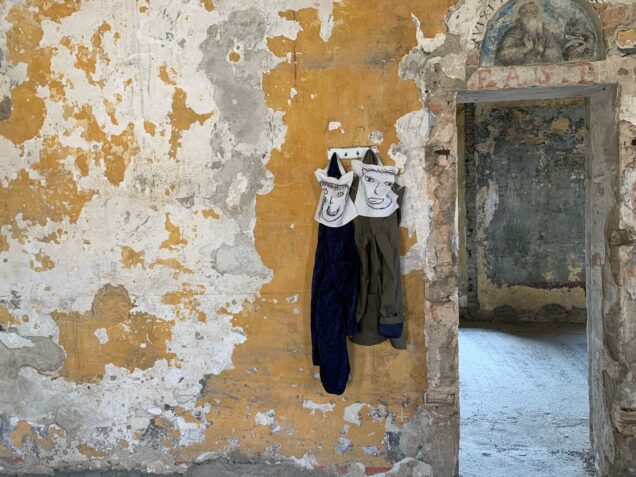About the Project

The Project
The Women and Masks Project is a multi-disciplinary and multi-faceted exploration of the myriad ways that women and masks intersect, and what the joining reveals about each. The project is designed as a space––virtual and physical–– for the exchange of ideas. It is a nexus of research and information, a mechanism for the organizing and disseminating events and opportunities, and a repository of resources that seeks to make women and their work with masks discoverable. The project is based at Boston University and coordinated by Dr. Felice Amato, assistant professor in the School of Visual Arts. It is designed to help foster a transdisciplinary subfield focused on practitioners and scholars that connect the female to the mask as an object and a phenomenon, a form of material performance, a metaphor, a technology, and more. The project presents opportunities for virtual interaction as well as physical encounters.
The emerged from a year-long, virtual conference held in 2021-22: Women and Masks: A Transdisciplinary Arts-Research Conference. The conference brought together many fields and many modes of inquiry forms of knowing (read more below). As an evolution of the conference, the project seeks to promote a transdisciplinary approach. We draw on the emerging themes as points of departure. We welcome collaborators and participants to help to shape the form it takes. While the virtual and the digital may be the easiest for the project to accommodate, like the conference, we strive to include embodied and material experiences as well.
The History
The Women and Masks Project emerged from a year-long, virtual conference held in 2021-22: Women and Masks: A Transdisciplinary Arts-Research Conference. The idea was to create a transdisciplinary inquiry into the mask with multiple fields and modes of participation. When Felice Amato proposed the conference to her department and college at Boston University and colleagues in the field, it was the end of the first year of the pandemic and masks were on people’s mind. The idea for the conference, however, preceded COVID. It was sparked by Amato’s ongoing research interest in the masks, puppets, and material performance, as well as women’s diverse experiences. With support from the Boston University Center for the Humanities, the College of Fine Arts and the Schools of Visual Arts and Theatre, and the Boston University Arts Initiative, the concept was realized. Supported by collaborator, mask maker and performer Alexandra Simpson; author, costumer, and Professor Deborah Bell; Education Outreach Coordinator of the African Studies Center Elsa Weihe; artist and educator Paula Mans; and many others, the conference took shape. Taking on various roles in developing the website, scheduling and hosting four weekends of programming, and creating mailings to promote the participants, the team was supported by undergraduate interns Emely Torrres Selmo and Tengyao Zheng. The conference, which was also endorsed by UNIMA-USA, hosted presentations, talks, panels and performances by more than 70 participants from more than 30 countries. More than 350 people attended one or more events and more than 500 signed up to receive the mailings that helped make the participants’ work visible. Inspired by the impact of the conference, Amato decided to transition the website to an ongoing conversation about women and masks that could endure and build upon the conference framework. In 2023, BU undergraduate arts researcher Anna Paradise created an archive of the conference and redesigned the website. Resources developed to support the conference now continue to be available and more will be added. The Women and Masks Project will continue the conversation and investigations which were initiated, establishing an enduring platform for arts-based research.